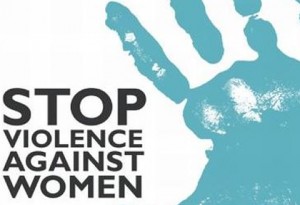Violence against women increases after disaster – UN Women
 Ms Phumzile Mlambo-Ngcuka, United Nations Women Executive Director, has stressed that the risk of violence against women and girls increases after a disaster.
Ms Phumzile Mlambo-Ngcuka, United Nations Women Executive Director, has stressed that the risk of violence against women and girls increases after a disaster.
“In areas of conflict, women and girls are frequently targeted and denied access to education, reproductive services, healthcare, and participation in economic and political life.
“At the same time, women are essential to recovery and resilience-building,” Ms Mlambo-Ngcuka stated at a World Humanitarian Summit, which is a side event at the on-going 60th session of the UN Commission on the Status of Women (CSW60), New York.
She noted that the centrality of gender equality is reaffirmed by the 2030 Agenda for Sustainable Development, Goal 5 and its related targets.
The critical role of women is also integrated in the Sendai Framework on Disaster Risk Reduction, the Global Review of Implementation of Security Council resolution 1325, resolution 2242, the Secretary-General’s Report on the World Humanitarian Summit and the Agenda for Humanity.
The first World Humanitarian Summit is slated for Istanbul from May 23-24 and it is the culmination of a multi-year process initiated by the UN Secretary-General to improve humanitarian action worldwide.
Ms Mlambo-Ngcuka stressed that the world was seeing the increasing effects of climate change, violent extremism and an unprecedented number of displaced persons.
“Women and girls are affected disproportionately by these crises.
“It has also clearly emerged in the consultations that have been held in preparation for the World Humanitarian Summit that gender equality and women’s empowerment are central.
“This resulted in four proposed commitments for Istanbul which will be covered in order to highlight the issues as they refer to women and girls. These are: the role of women’s organizations in crises situations; reproductive rights and the provision of care services; preventing gender-based violence; and enabling women’s participation and leadership,” she noted.
Governments and gender advocates across the globe are using the CSW60 platform to focus on creating a conducive environment for gender-responsive implementation of the 2030 Agenda for Sustainable Development.
They are through actions to ensure enabling laws and policies, solid institutional infrastructures, adequate financial resources, strengthening of participation mechanisms, and investment in sex-disaggregated data, to guide national action.
Nana Oye Lithur, Minister of Gender, Children and Social Protection told the Ghana News Agency in an interview in New York that the CSW60 was ready to set robust actions for translating ambitious development roadmap into reality for women and girls.
She said following a milestone year in international development in which world leaders endorsed the 2030 Agenda for Sustainable Development; CSW60 focusing firmly on implementation of the ambitious agreement.
The Sustainable Development Goals (SDGs) adopted by UN Member States in September 2015 are a universal roadmap for people and planet, addressing the key challenges of the 21st century, such as poverty, inequality and climate change.
Nana Oye Lithur noted that gender equality and the empowerment of all women and girls was a goal in itself, and recognized as a central means to achieving the SDGs. Success depended on rigorous implementation.
Source: GNA
